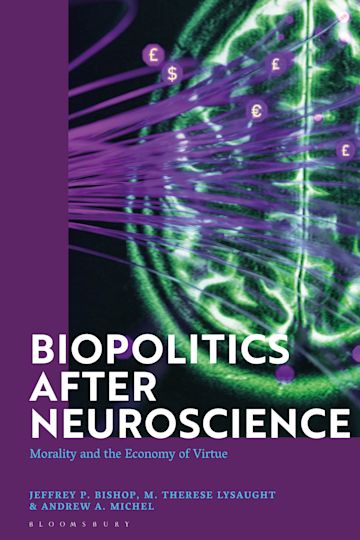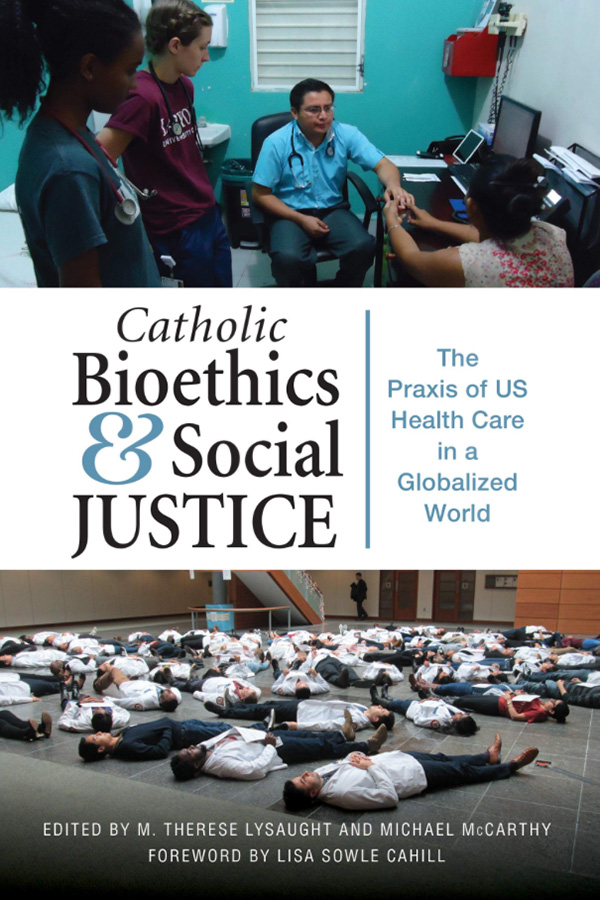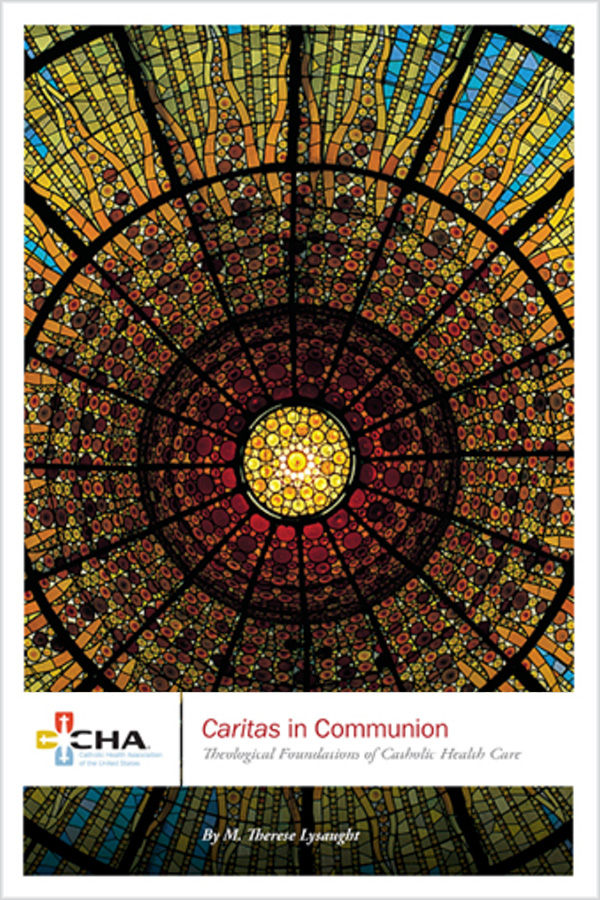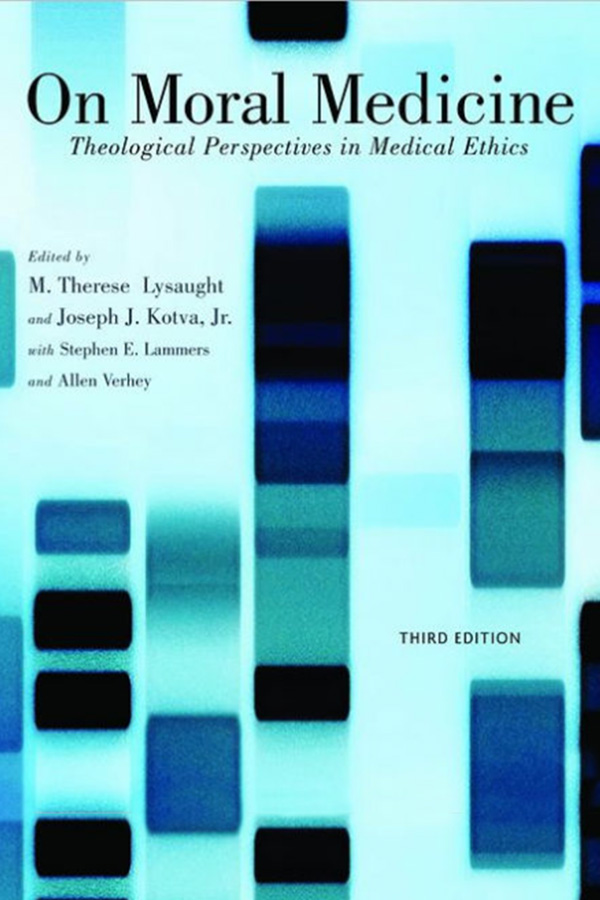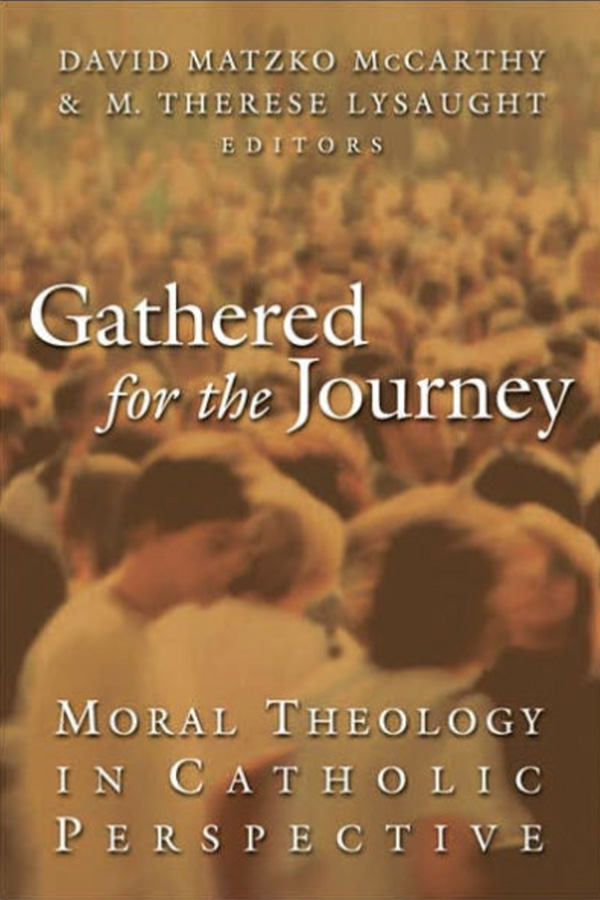
BOOKS
PURCHASE
Biopolitics After Neuroscience: Morality and the Economy of Virtue
By Jeffrey P. Bishop, M. Therese Lysaught, and Andrew A. Michel
Bloomsbury Academic, 2022
Biopolitics After Neuroscience: Morality and the Economy of Virtue offers a provocative analysis of the neuroscience of morality. Written by three leading scholars of science, medicine, and bioethics, it critiques contemporary neuroscientific claims about individual morality and notions of good and evil. Winner of a 2021 prize from the Expanded Reason Institute and the Vatican’s Benedict XVI Foundation, it connects moral philosophy to neoliberal economics and successfully challenges the idea that we can locate morality in the brain.
Instead of discovering the source of morality in the brain as they claim to do, the popularizers of contemporary neuroscience are shown to participate in an understanding of human behavior that serves the vested interests of contemporary political economy. Providing evidence that the history of claims about morality and brain function reach back 400 years, the authors locate its genesis in the beginnings of modern philosophy, science, and economics. They further map this trajectory through the economic and moral theories of Francis Bacon, David Hume, Jeremy Bentham, John Stuart Mill, and the Chicago School of Economics to uncover a pervasive colonial anthropology at play in the neuroscience of morality today.
The book concludes by asking what it will take to free not only neuroscience, but contemporary science as a whole, from economization and the politico-philosophical commitments of the neoliberal age in order to reorient it toward a more human science, informed by a more robust human anthropology that embraces the nobility, beauty, frailties, and flaws in being human.
Click here to read the Introduction.
Spanish translation: Biopolítica después de la Neurociencia: Moralidad y la Economía de la Virtud (Madrid: Universidad Francisco de Vitoria, in press 2023).
CO-AUTHORS
Jeffrey P. Bishop, MD, PhD, is Professor of Philosophy and Professor of Theological Studies at Saint Louis University, USA, where he also holds the Tenet Endowed Chair in Bioethics.
Andrew A. Michel, MD, is Associate Professor of Psychiatry at the Thomas F. Frist, Jr. College of Medicine at Belmont University, USA.
ENDORSEMENTS
“Hypothesizing originally that neuroscience could be adduced to complicate virtue ethics, the authors discovered instead the embeddedness of neoliberal drivers and norms in the field itself. Deeply researched, immensely thoughtful, and beautifully written, this work is a major contribution to understanding how the sciences mirror rather than bracket social and political principles of an age.”
—Wendy Brown, UPS Foundation Professor, Institute for Advanced Study, Princeton.
…
“Neuroscience promises to unlock the secrets of the brain and release powerful forces for healing and well-being, albeit at the cost of erasing free will and moral responsibility. Biopolitics After Neuroscience powerfully traces the roots of this project in a social imaginary spawned by eighteenth-century political economy, linked with the rise of utilitarian moral theory, and bound up with policing the “undeserving” poor. The brain is imagined as a new invisible hand, the secrets of which can be unlocked through neuroscience and directed toward the formation of maximally efficient, productive economic citizens. Bishop, Lysaught, and Michel’s bold analysis should give readers pause about jumping on this latest Big Science bandwagon.”
—Jennifer Herdt, Gilbert L. Stark Professor of Christian Ethics, Yale University
…
“This is the sort of volume I have eagerly awaited. The authors skillfully describe how neoliberal values have shaped neuroscientific research. However, their argument transcends this specialty. After this book, no discipline—academic or otherwise—can afford to ignore how its practitioners may unknowingly serve the political and economic masters.”
—Bruce Rodgers-Vaughn, Visiting Scholar, Vanderbilt Divinity School
…
“This book is a tour de force, offering a detailed analysis of the neuroscience of morality in relation to neoliberal economic thought. It is both a provocative critique of current neuroscience and a call for a more humane cultural conversation about what it means to be human. It will be essential reading for anyone interested in the wider philosophical, theological, or ethical implications of neuroscience.”
—Neil Messer, University of Winchester, UK
…
“A perceptive and illuminating work. Hidden within the technical theories of neuroscience, Bishop, Lysaught, and Michel, uncover a moral language with disturbing implications for race, poverty, and many other areas of urgent political concern. It turns out much of what claims to be a “science” of the brain is, in fact ideology.”
—Jason Blakely, Professor of Political Philosophy, Pepperdine University

